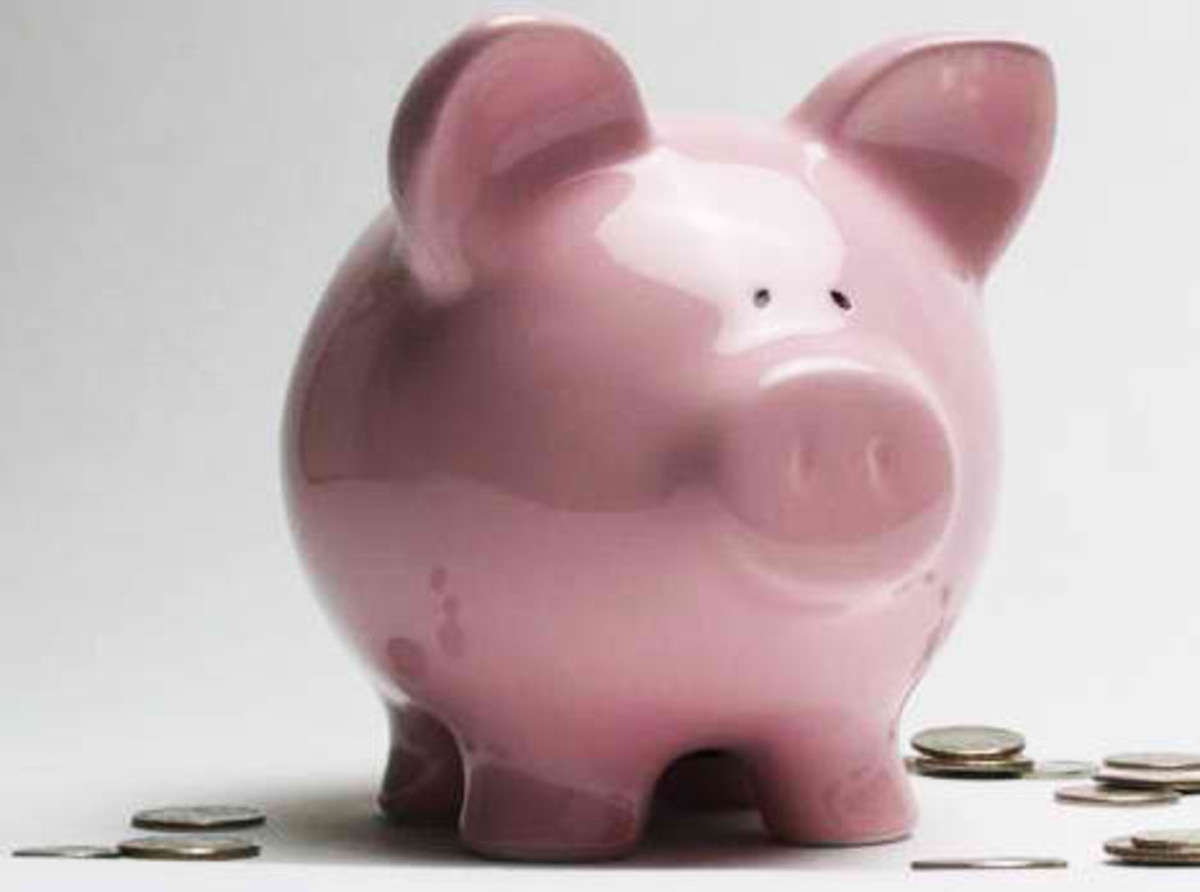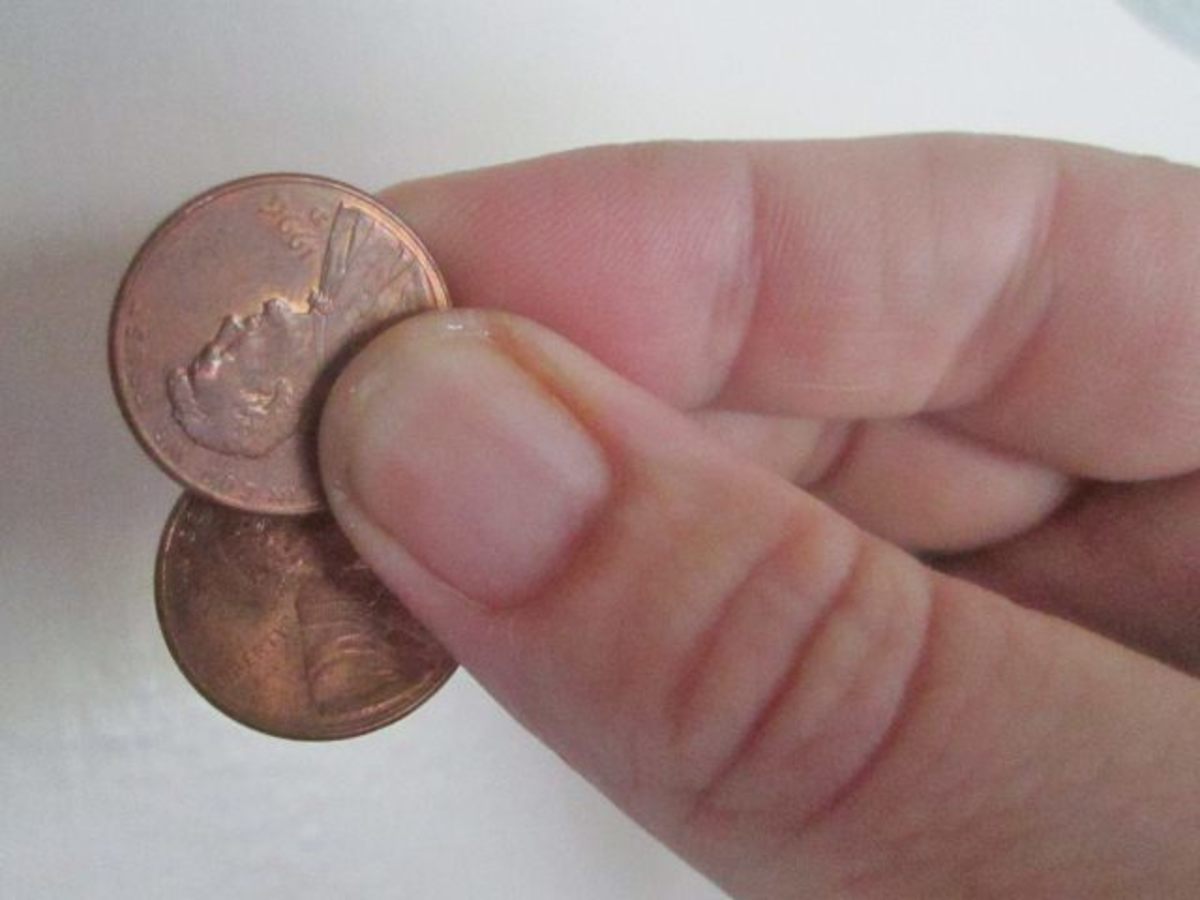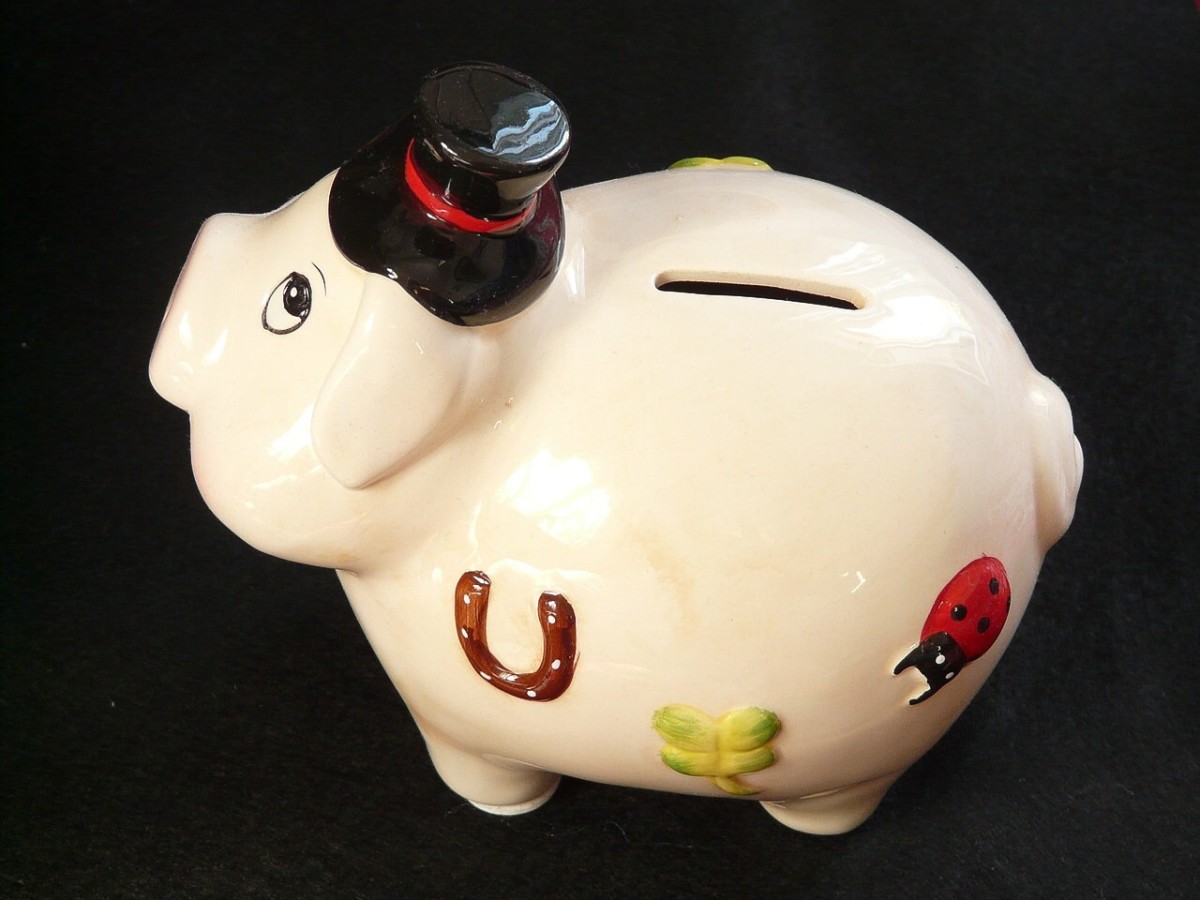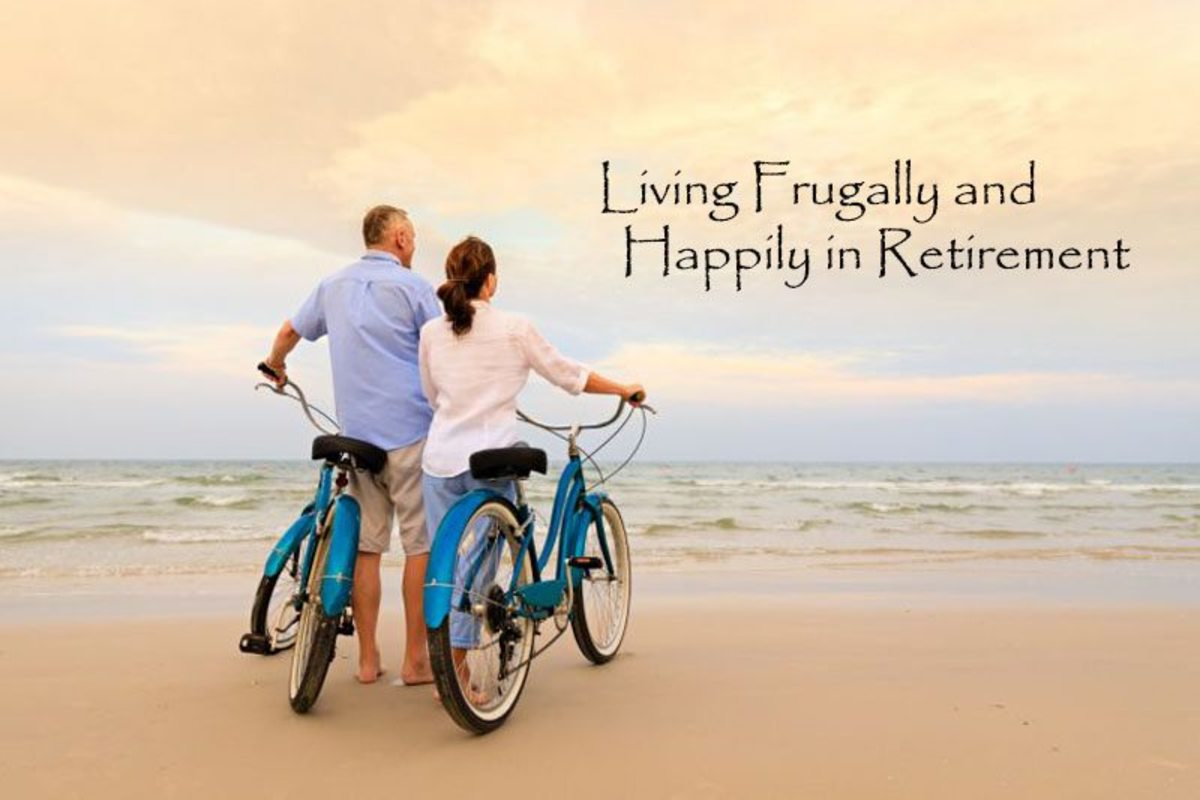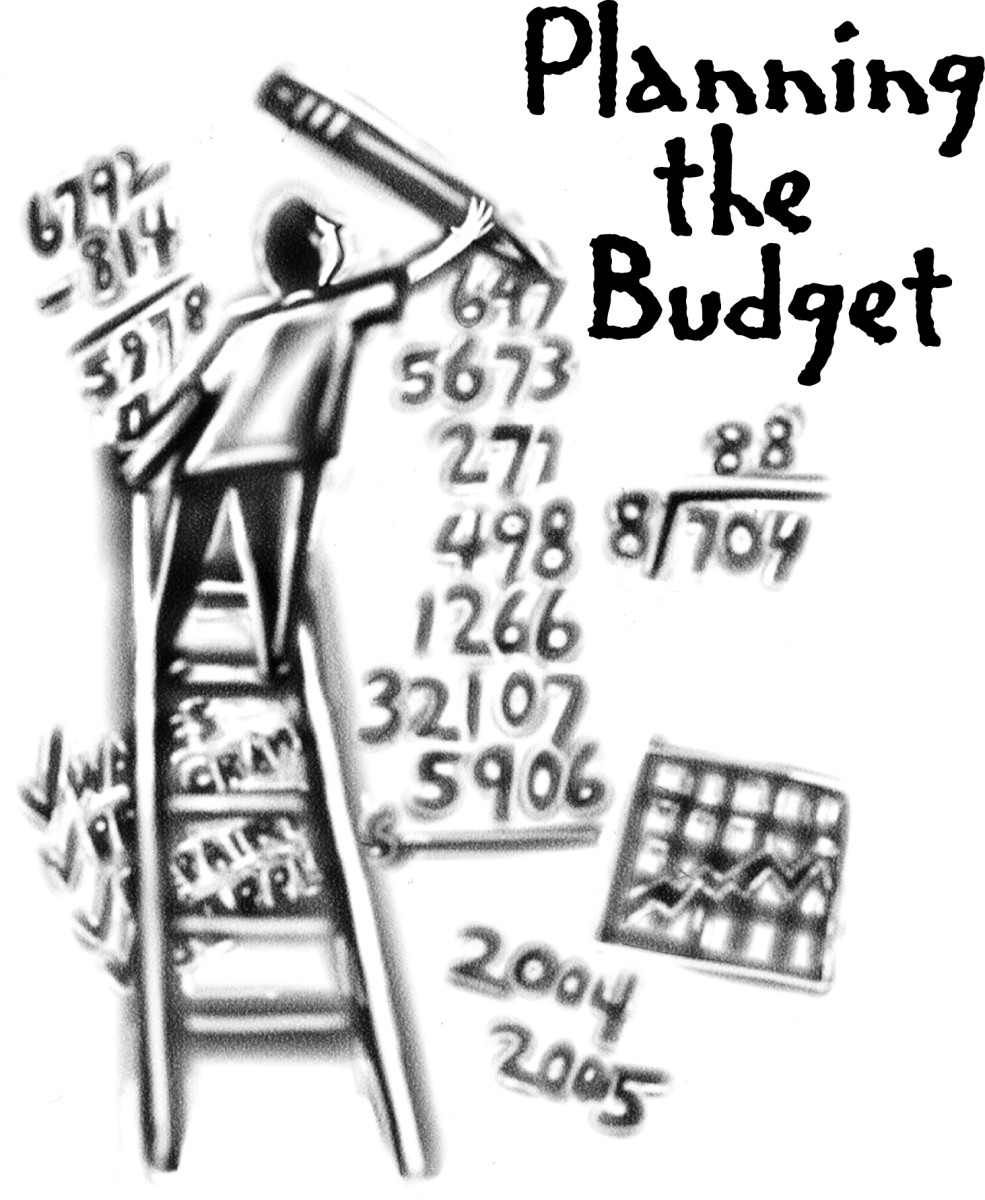12 Steps to Frugal Living: How to Stop Spending and Start Living

Yes I am a Spendaholic
The 12 Step Program has helped millions of Alcoholics to stop drinking and turn their lives around, could the same principles help us stop spending money and move towards a more frugal lifestyle?
"I need that (supersized) burger."
"I'll feel better if I buy those shoes."
"I deserve that Jaguar."
Sound familiar? Okay you may not be a full blown SAP member (Spendaholic Anonymous Program) but most of us dip more than a toe in the oh so comforting sea of spending.
"Well that's not a problem, I'll read some of those excellent Hubpages about frugal living (see below), adopt some of the tips and I'll be right as rain. Before you know it I'll be able to peel an orange in my pocket and be as tight as a glass blower's backside."
The trouble is... making the change from profligate to parsimonious is pretty much in the 'new year resolution' bracket, easy to say but not easy to do and to keep doing.
If you are anything like me, you can resist everything but temptation, and if you are genetically inclined to addictive habits then changing well worn habits becomes a serious problem.
So what is it about the AA 12 Step Program that is so powerful and what can we learn from it that can help us to stop spending and start living? Let's take a look at those steps.
Are you a spendaholic?
view quiz statisticsOkay that was just for fun, but if you scored over 50% this article could be for you!
Step 1 - Admitted we were powerless over spending and that our lives were unmanageable.
"Yes, I am a spendaholic/shopaholic."
Admitting, if not publicly then at least to yourself, that you spend too much is the first step on the road to frugal living.
'Powerless' seems to be the focal word here. Perhaps it may help to make a list of the feelings that come over you when you are tempted to spend money when you don't have to. Regret, guilt, fear, have I harmed anyone or perhaps damaged a relationship. It doesn't have to be something big, like a house, you may find that extra shot of espresso is knocking a hole in your small change. sometimes the devil is in the detail.
Step 2 - Came to believe that a power greater than ourselves could restore us to sanity.
In this discussion I'm deliberately relating spending to sanity. I'm trying to make the point that we may be much happier if we were able to let those sticky spending urges slip off our new teflon personality. But before we can become the person who is more comfortable with less it may be necessary to discover a power greater greater than ourselves.
Could it be bankruptcy or the threat of it that is your tipping point. Perhaps your habits are pushing a loved one away. In times of recession you may have been made redundant or forced into retirement.
Force of circumstance can raise the level of pain to the point where something has to give. Are you steadily working towards that point or has the world forced itself into your face? Where are you on the spectrum of decline?
Frugal Living Guides
Step 3 - Made a decision to turn our will and our lives over to the care of God (as I understood him).
This step sounds at face value as if you might be giving up responsibility for your actions. But I think the emphasis here is on less hubris and more humility. It's about taking a step back from feeling as if you need whatever it is that is about to take up residence in your shopping cart.
A lot of the time we buy stuff because of some twisted reasoning that we have to have that thing because it will make us feel better, look wealthier, keep us up with the Jones', make us safer. We have some kind of internal rule set up that must be fulfilled by spending and accumulating.
Step three is about losing the rules. Stop needing life on your terms. Go with the flow.

Step 4 - Made a searching and fearless moral inventory of ourselves.
Getting down to basics with this step. What is it that makes you spend that little extra, to have to have the Cadillac when the Ford would do?
It's very easy to play the blame game.
- I maxed out my Credit Card because the company told me I didn't have to wait, I could have it all now.
- The TV advert told me I needed a new sofa.
- The supermarket puts all the big brands right in front of me and hides the 'value' brand on the bottom shelf.
- Why bother to cook when I can have MacDonald's.
Did you resent your parent's being penny pinchers. "If my old man tells me to turn off the light one more time... or tells me to put another layer on." Hanging on to resentment is like drinking poison and expecting the other person to die.
Fear is folly and peer pressure is pants. Just because next door have a new gas barbeque big enough to roast a Bison do I really need something that big to sizzle my sausage?
Make a list of all the reasons why you spend more than you have to. If you are a product of your past then make a fresh start and become the person you would like to be.
Little by little, slow pressure will create change, like a plant growing through asphalt.
Step 5 - Admitting to God, to ourselves and another human beings the exact nature of wrongs.
Step 5 is about being honest and owning up.
- Tell someone you trust that you want to make a better financial life for yourself. If you can't tell someone else then tell yourself.
- Write it down, get it off your chest. You can keep what you've written as a reminder, screw it up and bin it, or if you're really serious about being frugal, put the paper in the composter and make a contribution to growing a new frugal life.
As well as taking responsibility for the fact that your past habits have caused you and perhaps others some trouble, this is probably a good point to make a note of what you are grateful for - look at what you have and not what you want.
A good exercise here would be to list all the stuff you bought but didn't need - then ceremoniously add that to the compost bin as well.
Step 6 - Were entirely ready to have God remove all these defects of character.
After the self analysis of steps 4 & 5 this is the step where you have to ask yourself if you are ready to adopt a lifestyle where you can exist without dropping back into the behaviours that have not served you well.
Who would you rather be stuck in a lift with? Flash Harry who bores you rigid with tales of all the amazing things they have just bought or where they have just been on holiday, or the person who listens to what you have to say, who wishes you a nice day and complements you on that new jacket you just picked up from the charity shop or who thanks you for the pot of home made jam you gave them the other week.
What is the trick here for keeping your new direction?
Do the opposite!
- If you want to spend, give.
- If you want to brag, complement.
- If you feel jealous remember how grateful you are for what you have.
Its time to get off the spending Merry Go Round!

Step 7 - Humbly asked him to remove our shortcomings.
Admitting to yourself, "I am the problem", is a big step towards moving away from financial disability. Trying to live without blaming the corporations or your family or the government is the way to go. It's only Bart Simpson who says "I didn't do it".
Living blamelessly is taking responsibility for your actions and allowing others to take their own route. You are doing what's best for you and if that means working extra hours to clear your debts, saving for an emergency fund, giving instead of taking, then so be it.
Find some perspective for yourself. If the pressure is mounting and the stress is about to boil over it's good to remember our place in the cosmos. We are like a speck of dust on a rock hurtling through space at 64,000 mph, spinning at 1000 mph. We are all just dust!
Step 8 - Made a list of persons we had harmed and became willing to make amends to them all.
This may sound a bit heavy duty. If you are reading this thinking you would like to be a little more frugal and my only aim is to knock some money of my household bills, then who will I have to make amends to? Well this is aimed a little more at the serious spenders.
You may need to put yourself at the top of this list. Excessive and unnecessary spending can be a form of self abuse. The way to make amends to yourself is to forgive yourself. Forgiveness will set you free. Whether you have been mistreated or you have mistreated others, make a list and work through it. Don't let the chip on your shoulder become a monkey on your back.
The keyword here is willing. Willing to not get yourself in such a bad situation again, willing to keep your self esteem willing to be forgiving, willing to make amends and willing to be blameless.
You are now well on your way to a frugal and happy life.
Step 9 - Made direct amends to such people except when to do so would injure others.
If you have been or are in a situation where you are deep in debt
and have defaulted or even gone bankrupt then it can give your self
esteem a bashing. I would like to see the expresion on the face of the
bank call centre operative when you call up to say you are sorry for
missing your payments. But you can work out a repayment plan and if it's gone too far for that, remind yourself that you are a new person and will not be repeating the mistakes of the past.
Some people, particularly teenagers, make a habit of freeloading. If you borrow from family and friends and don't pay it back, it's never too late to ask for their forgiveness. Everybody makes mistakes.
Stick to what will make the situation better for everyone. It may not be the best option to ask your partner forgiveness for spending the mortgage money on your golf club membership and while on a roll can you be forgiven for having an affair ten years ago. The aim is not to make things worse but to move forward positively.
It's difficult to start a new life when you remain haunted by the old.
Step 10 - Continued to take personal inventory and when we were wrong, promptly admitted it.
Old habits die hard.
Change won't happen overnight.
Celebrate small advances, one day at a time. That was then, this is now.
Step 11 - Sort through, pray and mediation, to improve our conscious contact with God, as we understand him, praying only for knowledge of his will for use and
Most of the great religions have somewhere in the small print a section extolling the virtues of minimalism. Jesus wasn't big on possessions, nor was Buddah. A Buddhist monk only has pretty much the sandals and robe he stands up in. That may be taking a frugal life a little too far for most of us. But I think the message here is not just to live with less but to be comfortable living with less.
Look at most native tribes, the warriors don't have a spare hut full of spears and the women have one cooking pot. They are experts at paring down everything to the essentials. That's not to say they don't enjoy anything aesthetic. Dressing up and having a good time is a pretty important part of life.
The power of step 11 is getting comfortable in your own skin. Having acceptance that the present is the result of the past and the future will be the result of the present.
This would be a good time to come up with an affirmation or two that will keep you on track. Keep it simple and in the present.
Such as - It's okay to live with unsolved problems.
Step 12 - Having had a spiritual awakening as the result of this step. We tried to carry this message to those that still suffer. And to practice these principles
If you are still awake give yourself a pat on the back for making it to the end!
Step 12 is all about walking the talk.
If you look up 'frugal' in a thesaurus you see words like parsomonious, penny-pinching and cheeseparing (what is that??!!). 'Frugality' on the other hand offers carefulness, moderation and good management.
My Grandfather used to say 'moderation in everything lad, that's the secret', he'd then take a long drag on his pipe and spit in the fire.
What I'm trying to say is that if you can find some middle ground and be happy and grateful then this will radiate to others and in turn reinforce your choices to the point where you no longer have to consciously think frugal, it will just happen automatically. I never followed my Grandfathers example with the pipe, but I did learn to spit in the fire without hitting the carpet (I'm only kidding... we never had a carpet).
Epilogue
Do you remember those old TV Cop shows where they would have an epilogue to tell you the bad guy got his and cop who'd been 'winged' made it through? Well this is nothing like that. I just wanted to say that the 12 Step Program is a serious piece of work and that I in no way wish to trivialise it down to the level of people who have too many pairs of shoes. Rather, it is because it is so effective that we can all take a lesson from it in dealing not only with serious addictions but in just wanting to get out of an old rut and plough a new furrow.
If you want to learn more about the 12 Step Program then Wikipedia is a good starting point.
Good luck and thanks for reading.


